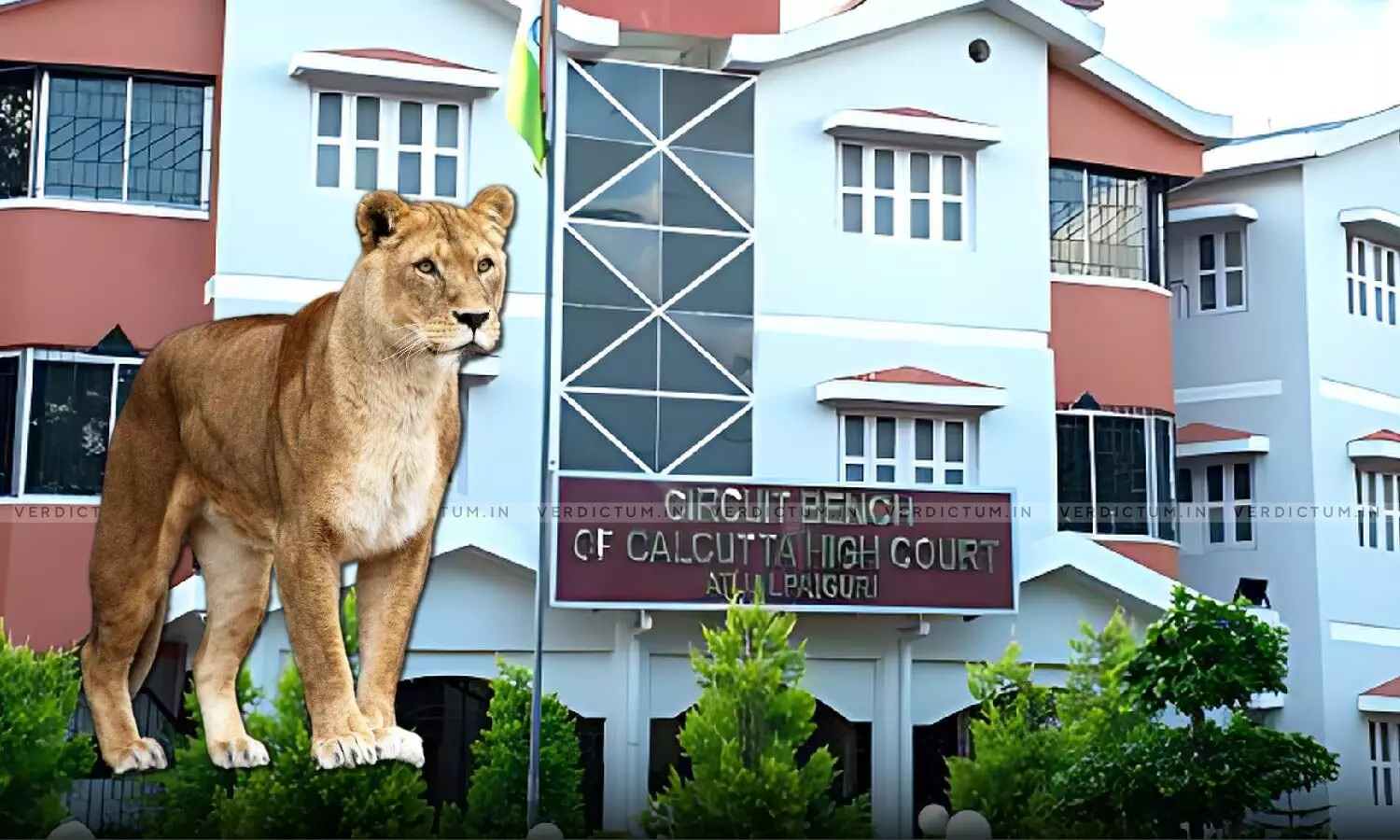
Calcutta High Court Asks State To Respond On VHP's Plea Whether It Actually Named A Lioness 'Sita'
 |
|The Calcutta High Court while hearing Vishwa Hindu Parishad’s (VHP) plea challenging the name of the Lions in Siliguri Safari Park has directed the State of West Bengal to respond as to whether the Lioness was really named "Sita" by it or not. The Court sought instructions from the State after the Petitioner submitted that there is lack of clarity on whether the Lioness was actually named so by the State.
In the writ petition under Article 226 of the Constitution of India, it is prayed that no animal should be named after any religious deity.
As per the Senior Counsel for the petitioner, media reports stated that the two Lions exchanged with the Tripura Zoo were named Akbar (male) and Sita (female) with the documents to substantiate it further.
Consequentially, a bench of Justice Saugata Bhattacharya said in its order, “The writ petition is heard in the presence of Learned Senior Advocate Sudipto Mazumdar representing the petitioners and Additional Advocate General Joyjit Chowdhary…the grievance of the organisation being social organisation is naming of one lioness as “Sita” which hurts religious sentiments of the citizens of this country who belong to a particular religion. However, in the same breadth, it has also been submitted very fairly that there is confusion whether the lioness has been named or not. Mr. Chowdhary submits that the writ petition in its present form is not maintainable and at best the writ petition may be to be treated as PIL. Therefore, on behalf of the State authorities, necessary direction is required to be passed considering the maintainability. Having considered the submission, since it has been expressed on behalf of the petitioners that naming of lion may have taken place or may not have taken place as alleged, this court directs Mr. Chowdhary to obtain instructions whether the allegation of the petitioners is correct or not relating to naming of Lioness. List the matter tomorrow…”.
The Court, during the hearing, observed that, "If it (Lioness) is not named by the State then there is no need to consider the grievance of the petitioner but if it is named then this Court will have to consider".The Bench was first surprised to hear that the matter pertained to the nomenclature of the Lions. The Court said that when it heard the Petitioner, it thought that the matter pertained to the nomenclature of "land" and not "Lion".
"I couldn’t follow you, I thought land…classification of land”, said Justice Bhattacharya.
"Milords sometimes we have to break away from daily drudgery”, responded the Senior Counsel on a lighter note.
The Court enquired as to how the Lions were named and the Senior Counsel responded that “it is a very tricky question”.
"...Zoo authorities have said that they have not named", he added further, clarifying that the State of Tripura from where the Lions were brought has clarified that they were not named by the State.
Further, the Senior Counsel submitted that naming the Lioness after a religious deity hurt the sentiments of the citizens. To that, Justice Bhattacharya said that it could also have been named so out of affection. Counsel responded by saying that by affection one cannot slander someone.
Thereafter, when the Bench further asked as to what the difficulty was even if a Lioness is named Sita, the Senior Counsel said, “Because we worship Sita. Let her be in the temple and not in the jungle”.
"Lion is also at the feet of Durga”, remarked Justice Bhattacharya.
The Bench further said that Lion is worshipped during Durga Pooja. "There is no mantra in the whole Durga Pooja dedicated to a Lion”, the Counsel said in response. Pursuant to which, the Senior Counsel tried to explain the symbolic reasons behind it.
During the hearing, the Court expressed doubt whether the matter should be treated as a PIL since the Petitioner organisation is not directly aggrieved.
On the Court's query whether the Lioness has actually been so named by the State, the State's Counsel said that he has not been able to obtain instructions.
Hence the Court adjourned the matter. The Court also adjourned another matter which sought similar relief.